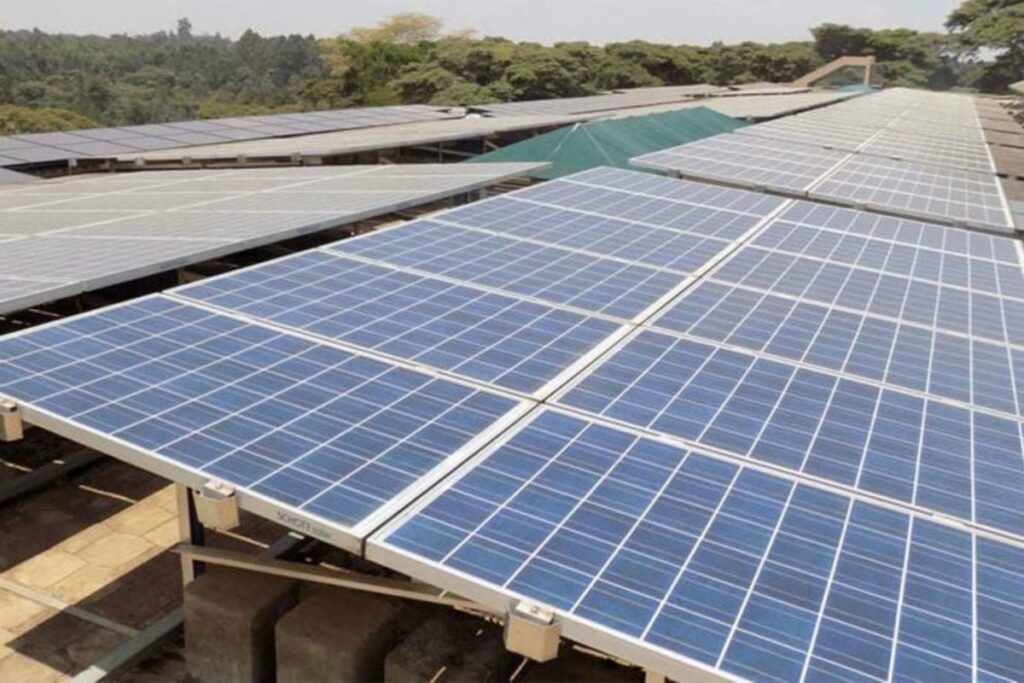Egypt has ratcheted up relations with Djibouti with a new solar power project that will provide the Horn of Africa country with alternative sources of energy and reduce its reliance on Ethiopia, Cairo’s regional foe.
The new project involves the construction of a solar power farm in Djibouti’s deserts, which officials say could be expanded to 300 kilowatts in the future. The deal means Egypt will fund the project as well as train Djiboutian technicians to operate it, according to a Tuesday dispatch.
Egypt’s Energy minister, Mahmoud Essmat, and his Djiboutian counterpart, Yonis Ali Gued, virtually signed the deal, talking mostly about their economic ambitions while avoiding its regional political implications.
Djibouti said the agreement related to the supply and installation of solar panels near the village of Omar Jaggaa.
“The signing on Tuesday of an agreement on the construction of a solar power plant with a capacity of 276.5 kilowatts between Djibouti and Egypt not only marks a step towards a mutually beneficial collaboration between our two countries, but also reaffirms the demands of President Ismail Omar Guelleh, who continues to make the energy issue a national priority in favour of our economic and social development,” said Alexis Mohamed, adviser to President Ismail Guelleh.
The two countries spoke of the deal bilaterally, but it was not lost on observers the implications of the renewed ties for the wider Horn of Africa, where Ethiopia and Egypt have bickered over the Nile and security cooperation in Somalia, and where Egypt has largely been befriending Addis Ababa’s enemies.
Ethiopia and Djibouti have some of the strongest trade ties, with Addis importing nearly 95 percent of its goods via the Port of Djibouti and Djibouti relying on Ethiopia for electricity supply for over 60 percent of its domestic and industrial use.
When Somalia and Ethiopia differed early this year over a controversial MoU for sea access signed with the breakaway Somaliland, Djibouti invited Addis Ababa to build a new port on its territory for business.
But Addis Ababa did not respond to the offer, as it is seeking for sea access to build a naval base, hence the Somaliland preference.
Recently, a new 283km transmission line and a power station funded by the African Development Bank (AfDB) was completed to supply power to Djibouti from Dire Dawa in eastern Ethiopia, at a cost of $138 million, to which the AfDB contributed $84 million as a loan.
Over the decade to 2020, Djibouti consumed some 532GWh per year from Ethiopia, making it one of Addis’ biggest customers alongside Sudan and Kenya, according to AfDB figures. Ethiopia earns about $30 million per year in power sales to Djibouti.
Incidentally, Djibouti says its demand for electricity has increased due to more business at its port and estimates that it will be consuming about 1GWh daily by 2030. It said the rise in demand and the desire to turn to renewable energy has influenced the search for investments in solar and geothermal sources.
According to the World Bank, 65 percent of Djibouti’s population have access to electricity and this is expected to rise to 72 percent once the new transmission line is up and running. That figure is expected to rise further once the solar farm kicks in.
Source link : https://www.theeastafrican.co.ke/tea/business-tech/egypt-vs-ethiopia-cairo-now-ropes-in-djibouti-with-solar-project-4795864
Author :
Publish date : 2024-10-17 04:00:00
Copyright for syndicated content belongs to the linked Source.
